Richard F Albert

December 07, 2022 | New York Law Journal
Setbacks Prosecuting Trump Allies Highlight Challenges in Foreign Influence CasesIn its recent stepped-up enforcement efforts against foreign influence in American politics, the DOJ has faced some high-profile setbacks when it has sought to use the broad reach of 18 U.S.C. §951 to pursue conduct outside the context of traditional espionage.
By Robert J. Anello and Richard F. Albert
12 minute read

October 12, 2022 | New York Law Journal
Insider Trading Unchained: Not Just Securities AnymoreTwo recent cases involving NFTs and cryptocurrency markets demonstrate the substantial flexibility federal prosecutors have—or at least believe they have—in charging insider trading and underscore the oft-recognized need for a federal statute expressly addressing insider trading.
By Robert J. Anello and Richard F. Albert
13 minute read
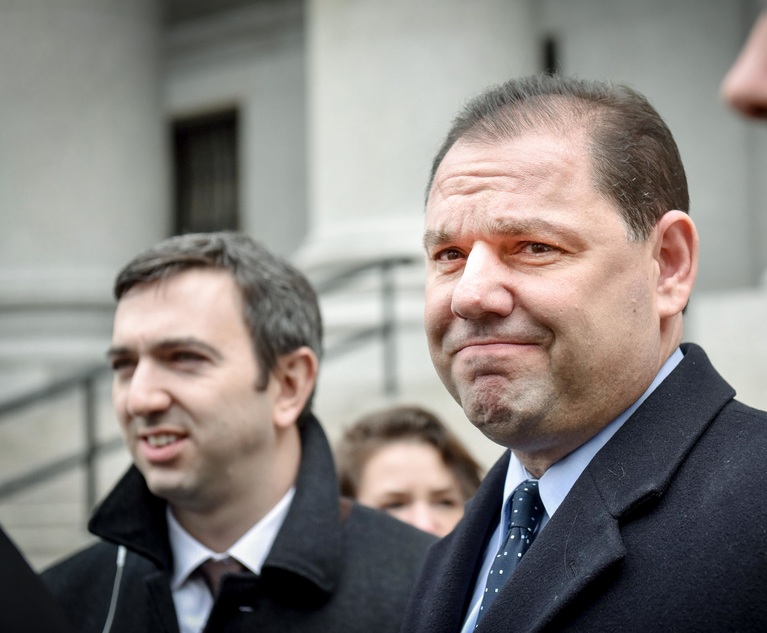
August 10, 2022 | New York Law Journal
Chastening the Prosecutor's Darlings? SCOTUS To Assess 'Right-To-Control' and Honest Services FraudIn 'Ciminelli' and 'Percoco', the Supreme Court will have the opportunity to further limit prosecutors' use of unduly broad interpretations of the federal fraud laws to impose their own notions of an integrity code onto state government and many other arenas beyond their proper reach.
By Robert J. Anello and Richard F. Albert
13 minute read

June 08, 2022 | New York Law Journal
Rough Seize Ahead: Do Asset Forfeiture Proposals Throw Due Process Overboard?Congress and the Biden administration need carefully to consider whether making political affiliation a crime in this instance would set a dangerous precedent for the future. Legal advocates need to be alert to legislation or enforcement that threatens to undermine due process protections.
By Robert J. Anello and Richard F. Albert
14 minute read

April 13, 2022 | New York Law Journal
License to Pill: SCOTUS Confronts Doctors' Good Faith Defense To Unlawful Distribution of Controlled SubstancesIf a doctor prescribing controlled substances believes, mistakenly, that he or she is acting within the usual course of professional practice, that sounds like medical malpractice, but is it also a felony?
By Robert J. Anello and Richard F. Albert
12 minute read
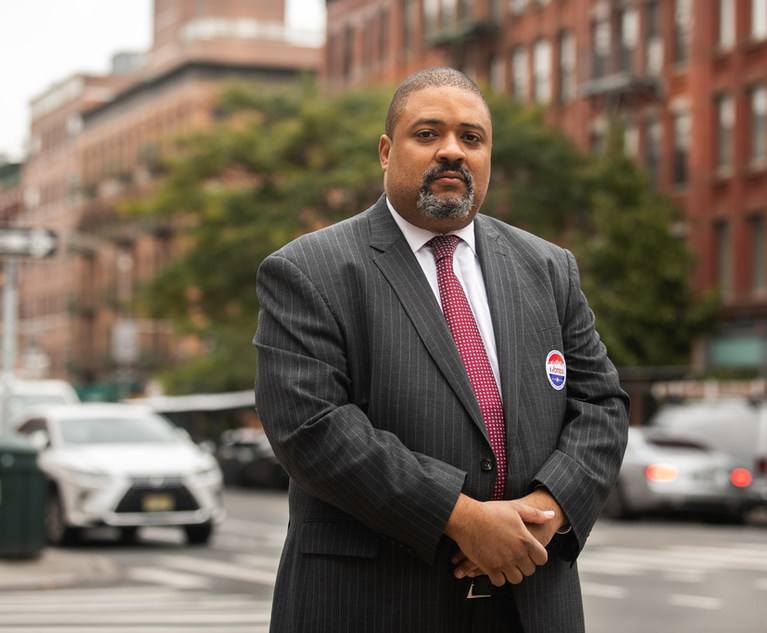
February 09, 2022 | New York Law Journal
D.A. Alvin Bragg Sets Out White-Collar Crime PrioritiesThis article provides a summary of how Manhattan's newly-elected prosecutor described his vision for addressing white-collar crime.
By Robert J. Anello and Richard F. Albert
13 minute read
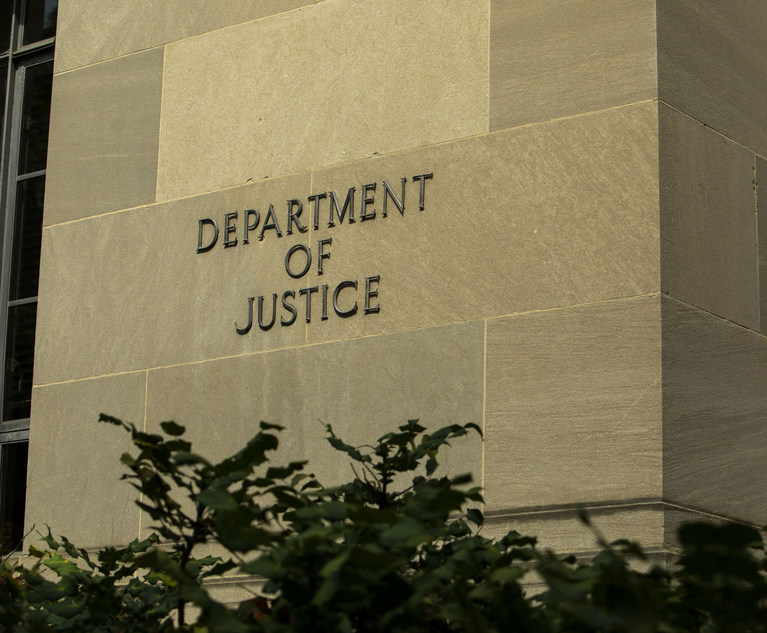
December 08, 2021 | New York Law Journal
Signaling Tougher Tone, Biden Administration Steps BackwardThe key policy changes announced thus far appear to be more symbolism than serious efforts at effective reform. Substantively, many will see these changes as a reversion to prior policies that did not work particularly well in practice and rightly were the subject of criticism.
By Robert J. Anello and Richard F. Albert
12 minute read

October 13, 2021 | New York Law Journal
Recent Woes for Prosecutors in Cellphone SearchesThree recent district court decisions exemplify how courts have struggled with the Fourth Amendment questions raised by the intrusive nature of cellphone searches.
By Robert J. Anello and Richard F. Albert
9 minute read
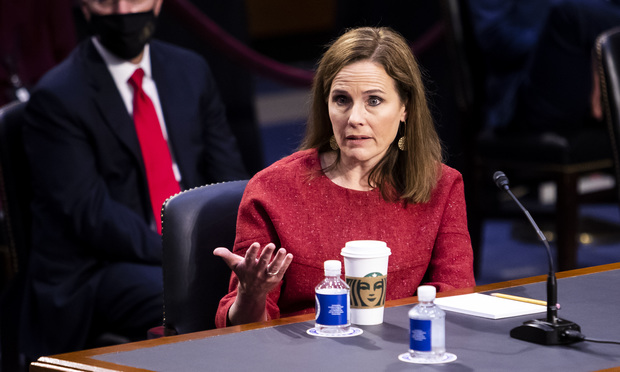
August 11, 2021 | New York Law Journal
'Van Buren v. U.S.': A Window Into Criminal Law in Barrett Era?White-Collar Crime columnists Robert J. Anello and Richard F. Albert discuss the U.S. Supreme Court's recent 'Van Buren' decision, which fits into a pattern of the court's modern criminal law jurisprudence that, while purporting to use only traditional tools of statutory interpretation and to eschew policy judgments, nevertheless appears motivated by concerns about the ever-expanding reach and severity of federal criminal law.
By Robert J. Anello and Richard F. Albert
12 minute read
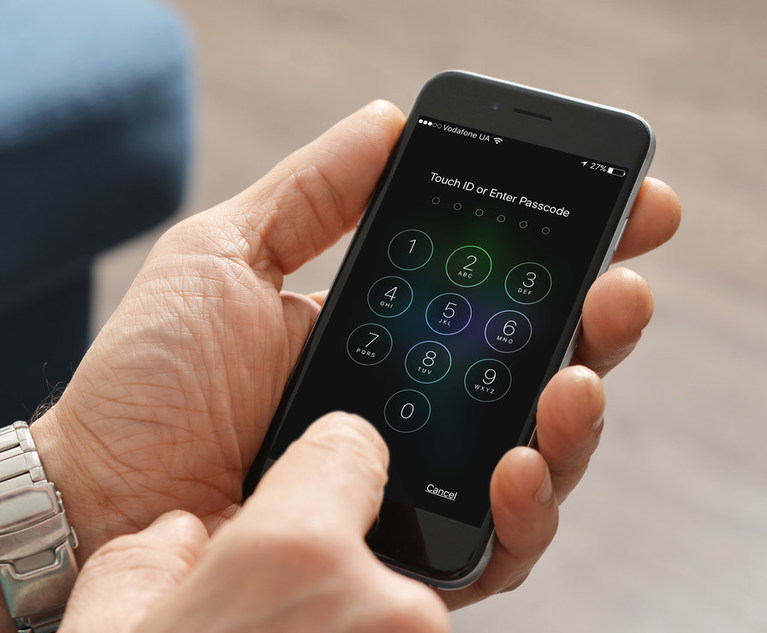
June 09, 2021 | New York Law Journal
Hey SIRI, Does the Fifth Amendment Protect My Passcode?When law enforcement seeks to compel a subject to provide a passcode to allow them to rummage through a cellphone, courts have not spoken with a unified voice. On May 12th, the Supreme Court declined to wade in, seemingly guaranteeing that continued uncertainty on this critical issue will continue to bedevil criminal practitioners. Robert J. Anello and Richard F. Albert discuss the issue in this edition of their White-Collar Crime column.
By Robert J. Anello and Richard F. Albert
11 minute read
Trending Stories
- 1Wine, Dine and Grind (Through the Weekend): Summer Associates Thirst For Experience in 'Real Matters'
- 2The Law Firm Disrupted: For Big Law Names, Shorter is Sweeter
- 3The 'Biden Effect' on Senior Attorneys: Should I Stay or Should I Go?
- 4BD Settles Thousands of Bard Hernia Mesh Lawsuits
- 5'You Are Not Alone': 120 Sex Assault Victims Plan to Sue Sean 'Diddy' Combs
More from ALM
- Morgan & Morgan Class Action Attorneys Detail Pathway to Success Within Cybersecurity and Data Privacy Practice 1 minute read
- Holwell Shuster & Goldberg Partners Leverage 'Hostile' Witnesses to Secure $101 Million Verdict Against Walmart 1 minute read
- Legal Speak at General Counsel Conference Midwest 2024: Mike Andolina, Partner, White & Case 1 minute read



